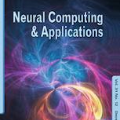We present a method of generating a collection of neural cellular automata (NCA) to design video game levels. While NCAs have so far only been trained via supervised learning, we present a quality diversity (QD) approach to generating a collection of NCA level generators. By framing the problem as a QD problem, our approach can train diverse level generators, whose output levels vary based on aesthetic or functional criteria. To efficiently generate NCAs, we train generators via Covariance Matrix Adaptation MAP-Elites (CMA-ME), a quality diversity algorithm which specializes in continuous search spaces. We apply our new method to generate level generators for several 2D tile-based games: a maze game, Sokoban, and Zelda. Our results show that CMA-ME can generate small NCAs that are diverse yet capable, often satisfying complex solvability criteria for deterministic agents. We compare against a Compositional Pattern-Producing Network (CPPN) baseline trained to produce diverse collections of generators and show that the NCA representation yields a better exploration of level-space.
翻译:我们提出了一个生成神经细胞自动成像(NCA)集集的方法,以设计视频游戏水平。虽然NCA迄今仅通过监督学习得到培训,但我们展示了一种质量多样性(QD)方法,以收集NCA级发电机。通过将问题描述为QD问题,我们的方法可以培训不同级别的发电机,其产出水平因审美或功能标准而不同。为了高效生成NCA,我们通过Covariance 矩阵适应适应MAP-Elites(CMA-ME)来培训发电机,这是一种高质量的多样性算法,专门用于连续搜索空间。我们运用了我们的新方法,为若干个基于2D级瓷盘的游戏(Maze游戏、Sokoban和Zelda)生成了级发电机。我们的结果显示,CMA-ME可以生成一个多样化的小型NCA,但能力却往往满足确定剂的复杂溶性标准。我们比较了为生成各种发电机收集而经过培训的组合模式化网络基线,并显示NCNA代表对水平空间进行更好的探索。




